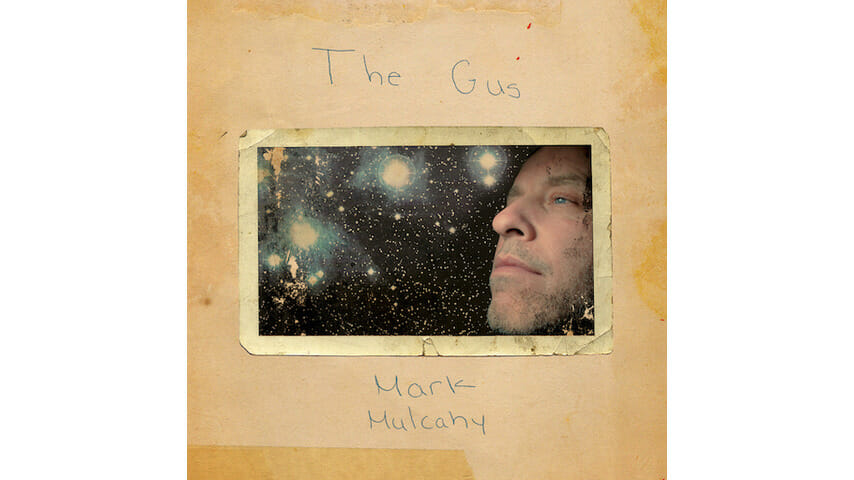Mark Mulcahy: The Gus

From his days with Miracle Legion and then Polaris, Mark Mulcahy has always had a laid-back, summer-porch pop styling that often betrays his complicated lyrics. On The Gus, Mulcahy unfolds a map of any neighborhood in America and then tears it apart, piece by piece, revealing a quiet underbelly of want and despair, of neediness and love in tiny truths and microscopic ficions.
The opening track “Wicked World” was allegedly inspired by George Saunders’ short stories and it shows strongest right here, as a domestic tragedy unfolds in a slow heartbreak of a duet featuring Rain Phoenix. Saunders’ short stories are often inspired by the disparity between hope and reality, and the simple act of taking the dog for a walk after dinner—“save me a piece of pie,” Mulcahy mentions as the narrator—becomes the scene of a fatal accident. Mulcahy takes his time with the song, creating an aching tension that lingers after the final note as dissipated.
Lead single “Taking Baby Steps” sandwiches heavy guitars around Mulcahy’s bleating voice, leaving them the first few lines alone before crashing back. Lyrically, we find Mulcahy stumbling and stretching over forgiveness of some long-ago crime: “As great as you are / You don’t have to change my mind / It’s not like I hate you / It’s not like I’m blind.” Meanwhile, “Later For The Box” is a scene-setter that sees the narrator get lemonade, chat with a neighbor and make dinner. We hear every second of this sweetly melodic micro-fiction, which creates a delicious anxiety that never quite resolves. But that’s okay; not everything has to end like the fatal crash that finishes “Wicked World.” It’s up to us, the listener, to decide what awaits when you untie the “candy cane string” and the song, a patient hum driven by light, jazzy percussion, never betrays our emotions one way or the other.
-

-

-

-

-

-

-

-

-

-

-

-

-

-

-

-

-

-

-

-

-

-

-

-

-

-

-

-

-

-

-

-

-

-

-

-

-

-

-

-








































